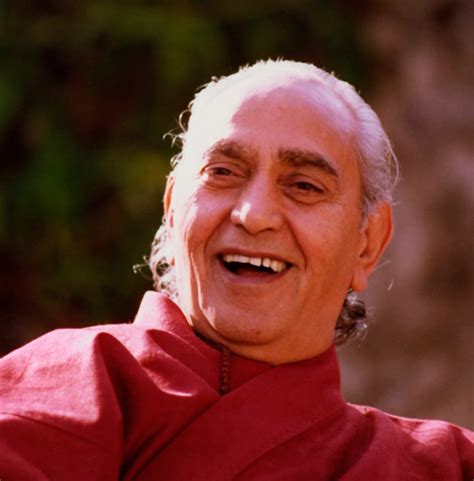A Quote by Rama Swami
To achieve purity of mind, one should cultivate constant awareness by being mindful all the time. One should remain always aware of one's thoughts.
Related Quotes
We are mindful of desire when we experience it with an embodied awareness, recognizing the sensations and thoughts of wanting as arising and passing phenomena. While this isn't easy, as we cultivate the clear seeing and compassion of Radical Acceptance, we discover we can open fully to this natural force, and remain free in its midst.
You are awareness. Awareness is another name for you. Since you are awareness there is no need to attain or cultivate it. All that you have to do is to give up being aware of other things, that is of the not-Self. If one gives up being aware of them then pure awareness alone remains, and that is the Self.
The mind of one meditating on a single object becomes one-pointed. And one-pointedness of mind leads to abidance in the self. Real attainment is to be fully conscious, to be aware of surroundings and the people around, to move among them all, but not to merge consciousness in the environment. One should remain in inner independent awareness.
You can indeed be aware of your body, but you can also be aware of your mind - you can right now notice all the thoughts and ideas and images floating in front of the mind's inward eye. You can, in other words, experience your mind, be aware of your mind. And it's very important to experience your mind directly, cleanly, intensely, because only by bringing awareness to the mind can you begin to transcend the mind and be free of its limitations.
In true meditation the emphasis is on being awareness; not on being aware of objects, but on resting as primordial awareness itself. Primordial awareness is the source in which all objects arise and subside. As you gently relax into awareness, into listening, the mind's compulsive contraction around objects will fade. Awareness naturally returns to its non-state of absolute unmanifest potential, the silent abyss beyond all knowing.
When we are fully conscious and aware, we actually know when we are about to overreact. When we are mindful, we have the mental space and are aware of when our moods change. When we are mindful, we are aware of when our mental models are being challenged and when expectation does not meet with reality, which can trigger an emotional response.
Just as a mother would protect with her life her own son, her only son, so one should cultivate an unbounded mind towards all beings, and loving-kindness towards all the world. One should cultivate an unbounded mind, above and below and across, without obstruction, without enmity, without rivalry. Standing, or going, or seated, or lying down, as long as one is free from drowsiness, one should practice this mindfulness. This, they say, is the holy state here.
A youth, when at home, should be filial and, abroad, respectful to his elders. He should be earnest and truthful. He should overflow in love to all and cultivate the friendship of the good. When he has time and opportunity, after the performance of these things, he should employ them in polite studies.
To limit yourself to a label of "alcoholic" is masochistic and false if you have awakened a deeper spiritual identity within and have come to know your true self as unconditioned pure awareness. This doesn't mean that recovering alcoholics don't have to be concerned with relapsing, they must always remain vigilant. The power of addiction should not be underestimated. This exercise in vigilance can become a spiritual tool of liberation as well. Always being aware of choosing between real happiness and false happiness is also the discrimination required to attain enlightenment.
To be free of all authority, of your own and that of another, is to die to everything of yesterday, so that your mind is always fresh, always young, innocent, full of vigour and passion. It is only in that state that one learns and observes. And for this, a great deal of awareness is required, actual awareness of what is going on inside yourself, without correcting it or telling it what it should or should not be, because the moment you correct it you have established another authority, a censor.






























